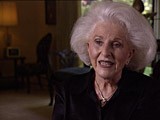You searched for: ���������������������������������������������������������������������cxfk69���just
<< Previous | Displaying results 121-130 of 572 for "���������������������������������������������������������������������cxfk69���just" | Next >>
-
Preben Munch-Nielsen
ID CardPreben was born to a Protestant family in the small Danish fishing village of Snekkersten. He was raised by his grandmother, who was also responsible for raising five other grandchildren. Every day Preben commuted to school in the Danish capital of Copenhagen, about 25 miles south of Snekkersten. 1933-39: There were very few Jews in Preben's elementary school, but he didn't think of them as Jews; they were just his classmates and pals. In Denmark they didn't distinguish between Jews and non-Jews, they…
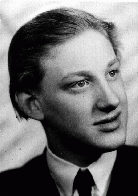
-
Dora Unger
ID CardDora, her parents, brother, aunt, uncle, and two cousins lived together in her grandfather's home in Essen, Germany. The Ungers were an observant Jewish family, and when Dora was 8, she began to regularly attend meetings of Brit HaNoar, a religious youth organization. 1933-39: In October 1938 a teacher, with tears in her eyes, came to Dora at the municipal pool, saying "Jews cannot swim here anymore." Just weeks later, on November 9, Jews were arrested and their property destroyed. A neighbor tried to…
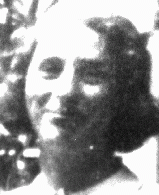
-
Mass Shootings at Babyn Yar (Babi Yar)
ArticleAt Babyn Yar in late September 1941, SS and German police units and their auxiliaries perpetrated one of the largest massacres of World War II.
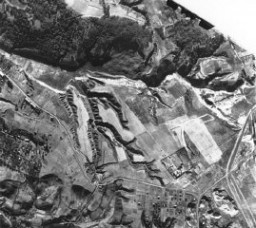
-
Jerry von Halle describes hunger while in hiding in Amsterdam
Oral HistoryIn 1933 Jerry's family moved from Hamburg to Amsterdam. The Germans invaded the Netherlands in 1940. In 1941, Jerry's brother perished in Mauthausen. Jerry and his parents went into hiding first in Amsterdam and then in a farmhouse in the south. The Gestapo (German Secret State Police) arrested Jerry's father in 1942, but Jerry and his mother managed to return to their first hiding place. They were liberated in Amsterdam by Canadian and Jewish Brigade troops.
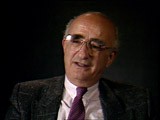
-
Nesse Galperin Godin describes the formation of the Siauliai ghetto
Oral HistoryNesse's family had a dairy business. The Germans occupied Lithuania in 1941 and established a ghetto in Siauliai. Nesse lived in the ghetto until 1943 when she was old enough to work. In 1944 Nesse, her mother, and a brother were deported to the Stutthof camp near Danzig. Nesse worked in several Stutthof subcamps until January 1945, when the inmates were put on a death march. She was liberated by the Soviets in March. Nesse, her mother, and two brothers survived, and she arrived in the United States in…
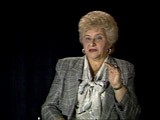
-
Miriam Lewent describes conditions in Siberia
Oral HistoryMiriam and her family fled their home when the Germans invaded Poland in 1939. They were interned by Soviet forces and deported to Siberia. Near the city of Tomsk, Miriam cut trees to earn food rations. When the Soviet Union went to war with Germany in June 1941, the Soviets released Miriam and her family. They sold their Red Cross rations for train fare and intended to return to Poland, but most of the family settled in Kazakhstan during the rest of the war. There, her father taught Hebrew to Jewish…
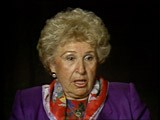
-
Gerda Weissmann Klein describes her birthday celebration in the Bielsko ghetto
Oral HistoryIn 1939, Gerda's brother was deported for forced labor. In June 1942, Gerda's family was deported from the Bielsko ghetto. While her parents were transported to Auschwitz, Gerda was sent to the Gross-Rosen camp system, where for the remainder of the war she performed forced labor in textile factories. Gerda was liberated after a death march, wearing the ski boots her father insisted would help her to survive. She married her American liberator.
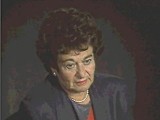
-
Abraham Lewent describes food shortages after the invasion of Warsaw
Oral HistoryLike other Jews, the Lewents were confined to the Warsaw ghetto. In 1942, as Abraham hid in a crawl space, the Germans seized his mother and sisters in a raid. They perished. He was deployed for forced labor nearby, but escaped to return to his father in the ghetto. In 1943, the two were deported to Majdanek, where Abraham's father died. Abraham later was sent to Skarzysko, Buchenwald, Schlieben, Bisingen, and Dachau. US troops liberated Abraham as the Germans evacuated prisoners.
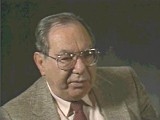
-
Steven Springfield describes 1945 death march from Burggraben in the Stutthof camp system
Oral HistoryThe Germans occupied Riga in 1941, and confined the Jews to a ghetto. In late 1941, at least 25,000 Jews from the ghetto were massacred at the Rumbula forest. Steven and his brother were sent to a small ghetto for able-bodied men. In 1943 Steven was deported to the Kaiserwald camp and sent to a nearby work camp. In 1944 he was transferred to Stutthof and forced to work in a shipbuilding firm. In 1945, Steven and his brother survived a death march and were liberated by Soviet forces.
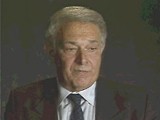
-
Lucille Szepsenwol Camhi describes obtaining Japanese transit visas from Chiune Sugihara in Kovno
Oral HistoryLucille's father died three months before she was born. Lucille's mother decided to immigrate to the United States with Lucille and her sister, Fejga. They completed all the paperwork, but were unable to get their final papers because of the German invasion of Poland in 1939. Volozhin was in the Soviet-occupied zone of Poland. Lucille and her sister feared arrest by the Soviets because they were members of a Jewish Zionist youth group. The girls fled to Vilna, where their mother later joined them. Their…
